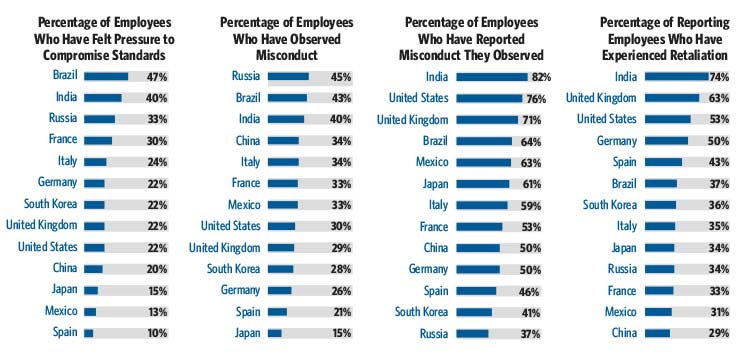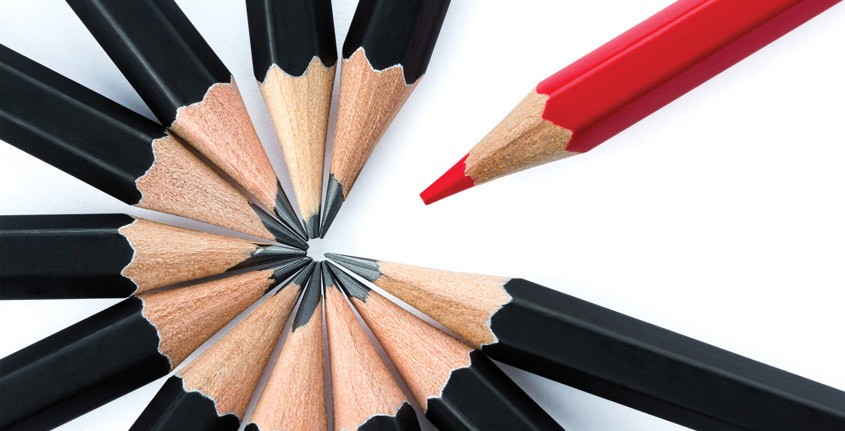The Ticker: Integrity in the Workplace
What happened to integrity in the workplace?
For many companies, it has seemingly been lost in the mix and mire of greed or pressure to perform. In 2015, scandals rocked Volkswagen and Toshiba. Last year, there was Wells Fargo and Theranos, just to name a few. It seems as if no industry or country is exempt.
According to the 2016 Global Business Ethics Survey produced by the Ethics & Compliance Initiative (ECI), a company’s risk of an ethical breakdown correlates to how integrity ranks in the corporate culture. Share on X
The survey, which included responses from 1,000 employees in each of the reported countries, highlighted four key metrics that “provide insight into the ethics environment by highlighting the risks that emerge from lapses of workplace integrity”:
- The pressure to compromise organizational standards: This is an important warning sign of future workplace misconduct.
- Observed misconduct: This is an indicator of whether or not employees follow the rules and live out the company’s core values.
- The reporting of observed misconduct: Silence around observed misconduct is an indicator that wrongdoing will continue and potentially worsen.
- Retaliation against reporters (including verbal harassment, demotions, undesirable assignments or even violence): Perceived retaliation will erode trust and often deters employees from reporting misconduct, which in turn allows bad behavior to broaden.
So which countries have the worst integrity track record, according to employees working in those countries? Here is how several stack up against each of the ECI’s metrics.




